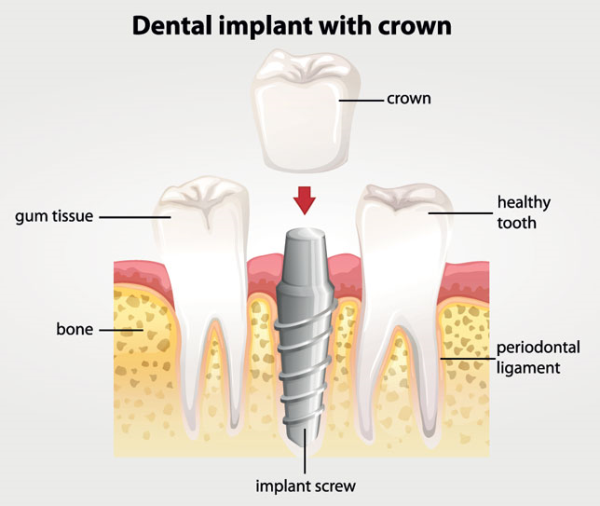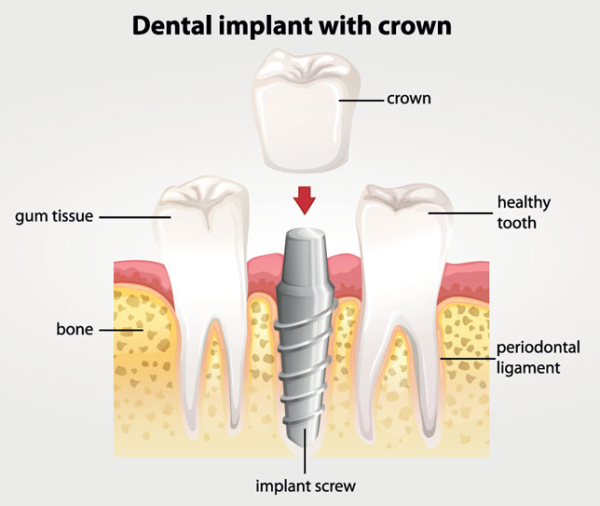Dental Implants: 4 Reasons to Consider Dental Implants


I'm missing a tooth. What are my tooth replacement options?
There are several options to replace missing teeth. One available option is to place a fixed bridge. Many dentists agree that dental care should be approached from a tooth-conserving perspective and placing a fixed bridge usually requires altering teeth that are otherwise healthy. In order to preserve your all of your teeth, and to provide a solution that is natural-looking, dentists offer dental implants as a better, longer lasting less invasive solution.
What are Dental Implants?
Dental implants serve as a complete tooth replacement. They are usually broken down into three components: the post, abutment, and restoration.
The dental implant post looks like a screw. It is normally made of titanium and integrates into the jawbone like a tooth root. This is a process known as osseointegration. The abutment is attached to the post, and the restoration, or crown, is attached to the abutment.
Reasons to Consider Dental Implants as your Tooth Replacement Option
1. Stop your teeth from shifting into the empty space - When you lose a tooth, the surrounding teeth will eventually begin moving to fill in the space. This can cause a number of dental complications. Unevenly spaced or crowded teeth are harder to keep clean and could cost you a fortune down the road in orthodontic care. Placing a dental implant now will keep your teeth properly spaced and make it easy to keep them clean.
2. Conserve your jawbone - If you choose to place a fixed bridge instead of getting a dental implant, your jawbone will eventually begin to deteriorate underneath the missing tooth. This occurs because you don't receive adequate stimulation to the bone without a tooth root. The same occurs with dentures that are not implant-supported. The longer you wait to get dental implants, the more likely it is that your jawbone may lack the integrity to get implants in the future without a dental bone graft.
3. Implant-supported dentures - Many people complain of a wide variety of complications with their dentures. Poor fit, sores in their mouths, sunken lips, and food restrictions. If you wear dentures, you can get a fixed, permanent solution with implant-supported dentures. There are various procedures available and some even support a full arch of prosthetic teeth with as few as four implants.
4. Preserve your appearance - When your jawbone begins to deteriorate because of missing teeth, it often causes your face to appear sunken in. This can make you look years older than you are. This is why people with dentures often complain of having thin lips and sunken cheeks. Dental implant posts provide the stimulation your body needs to produce dense, healthy jawbone material and keep your face looking full and youthful.
Modern Implant Dentistry
Implant dentistry has been around for decades. Today it is aided by digital imaging equipment, 3D CAD/CAM software, ceramic restoration milling machines, and computer tomography. A dentist with the latest implant dentistry technology at his or her disposal can literally show you your treatment results before ever actually beginning your treatment. If you choose dental implants to replace a tooth, multiple teeth, or provide a more comfortable solution for your dentures, talk to your dentist about your different dental implant treatment options.


